- Home
- Barry Lyga
I Hunt Killers
I Hunt Killers Read online
Begin Reading
Table of Contents
Copyright Page
In accordance with the U.S. Copyright Act of 1976, the scanning, uploading, and electronic sharing of any part of this book without the permission of the publisher is unlawful piracy and theft of the author’s intellectual property. If you would like to use material from the book (other than for review purposes), prior written permission must be obtained by contacting the publisher at [email protected]. Thank you for your support of the author’s rights.
For Alvina. Literally.
It was a beautiful day. It was a beautiful field.
Except for the body.
CHAPTER 1
By the time Jazz got to the field outside town, yellow police tape was everywhere, strung from stake to stake in a sort of drunken, off-kilter hexagon.
The field was thick with cops—state troopers in their khakis, a cluster of deputies in their blues, even a crime-scene tech in jeans and a Windbreaker. That last one really impressed Jazz; the town of Lobo’s Nod was too small for its own official crime-scene unit, so usually the deputies handled evidence collection at the scene. The fact that they’d actually called in a real, live tech from two towns over—and on a Sunday morning, no less—meant they were taking this seriously. Some of the deputies were down on all fours, heads down, and Jazz was amused to see a guy with a metal detector just outside the crime-scene tape, slowly pacing back and forth. One of the staties had a cheap little digital video camera and carefully paced the perimeter of the scene.
And riding herd over all of it was Sheriff G. William Tanner, standing off to one side, fists planted on his love handles, watching as his command scurried around at his bidding.
Jasper “Jazz” Dent wasn’t about to let the cops see him. He belly-crawled the last fifteen yards through underbrush and tall grass, patiently making his way to a good vantage point. This part of the old Harrison farm had once been endless rows of soybean plants; it was now nothing but old bent and broken stalks, weeds, cattails, and scrub. Perfect cover, really. From here, Jazz could make out the entirety of the crime scene, helpfully demarcated by the yellow tape.
“What have we here?” Jazz murmured to himself as the videographer—about ten feet from the body—suddenly shouted out. Jazz was far enough away that he couldn’t make out the words, but he knew it was something significant because everyone immediately turned in that direction, and another deputy rushed over.
Jazz went for his binoculars. He owned three different pairs, each for different purposes, each a gift from his father, who had very specific reasons for giving them to his son.
Jazz tried not to think about those reasons. For now, he was just happy that he’d brought this particular set of binocs: They were Steiner 8x30 binoculars—waterproof, rubberized grip, weighed just a tad over a pound. But their real selling point was the blue-tinted objective lenses, which reduced glare and reflection to almost nil. That meant the enemy—or, for example, a group of cops just twenty yards away—wouldn’t catch a glimpse of the sun bouncing off the glass and haul you out of the woods.
Dust and assorted leftover plant pollens tickled Jazz’s nose and he caught himself just before he sneezed. When you’re prospecting, Dear Old Dad had told him, you gotta be real quiet, see? Most people’ve got little noisy habits they never think of. You can’t do them things, Jasper. You have to be totally quiet. Dead quiet.
He hated most things about Dear Old Dad, but what he hated most was that Dear Old Dad was pretty much always right.
He zoomed in on the statie with the video camera, but the others were crowding around, making it impossible for him to see what had so excited everyone. Jazz watched as one of them held up a small plastic evidence bag, but before he could adjust to focus on the bag, the cop brought his arm down and the bag vanished behind his thigh.
“Someone found some evidence.…” Jazz chanted under his breath, then bit his bottom lip.
Most of these guys, they want to get caught, Dear Old Dad had said on more than one occasion. You understand what I’m saying? I’m saying most of the time, they get caught ’cause they want it, not ’cause anyone figures ’em out, not ’cause anyone outthinks ’em.
Jazz wasn’t doing anything wrong, lying out here on his belly, watching the police process the crime scene, but getting caught would probably mean being taken away, and possibly a stern lecture from G. William, and he didn’t want that.
He’d been at home earlier that morning, his bedroom door shut tight against one of his grandmother’s periodic rants (they’d been getting worse and more frequent), when the police scanner had soberly announced a code two-two-thirteen: An abandoned body had been found. Jazz had grabbed his pack—already stocked with everything he needed for a stakeout—and climbed down the drainpipe outside his window. (No point running into Gramma in the hallway and being delayed by her raving.)
A body was nothing new in Lobo’s Nod. The last time bodies had turned up, Jazz’s life had turned upside down, and it still hadn’t righted itself. Even though it had been years since those days and everyone had packed that time away, there were still times when Jazz feared his life would never be right side up again.
As the cops clustered around G. William, Jazz refocused on the body. As best he could tell from so far away, there was little in the way of serious trauma—no obvious knife or gunshot wounds, for example. Nothing major jumped out at him, but he didn’t exactly have the best vantage point.
He was reasonably certain of two things: It was a woman, and she was naked. Naked made sense. Naked bodies were tougher to identify. Clothes told you all sorts of things about a victim, and once you identified the victim, you were one step closer to identifying who made that person a victim.
Anything that slows them down—even if it’s just by a few minutes—is a good thing, Jasper. You want them nice and slow. Slow like a turtle. Slow like ketchup.
Through the binocs, he watched as G. William mopped sweat from his forehead with a checkered handkerchief. Jazz knew from experience and observation that the handkerchief had been embroidered GWT years ago by the sheriff’s late wife. G. William had a dozen of the snot rags, carefully laundered and cared for. He was the only man in town—probably the only man alive—who had his handkerchiefs professionally dry-cleaned.
The sheriff was a good guy. He came across as a sort of parody of himself when you first met him, but underneath that BBQ-infused gut and floppy, dishwater-colored mustache was some serious law-enforcement genius, as Jazz knew from personal experience. Tanner ran the entire county’s sheriff’s department from his office in Lobo’s Nod, and he’d earned the respect of not just the county, but the entire state. Heck, the staties didn’t send a guy out to videotape a field for just anyone. Tanner had pull.
Jazz swept his binocs over a bit and caught a glimpse of the evidence bag as G. William held it up in the sunshine. For a heart-stopping instant, he was sure what he saw in the bag couldn’t be for real. But the sheriff’s stance gave Jazz a perfect, binocular-enhanced view of what it held.
And that made Jazz’s heart pound so hard he thought Tanner would hear it from where he stood. A body in a field was one thing. It happened. A drifter. A runaway. Whatever. But this…This portended something new. Something big. And Jazz had a sinking feeling that people would be looking at him with accusation in their eyes. Only a matter of time, they would say. Had to happen sooner or later, they would say.
So he started running down possible alibis. From the relatively pristine condition of the body, he was comfortable guessing the woman had been killed sometime in the past six hours…and he’d been home in bed all night…with Gramma the only other person in the house. Not the world’s most reliable witness.
Connie. Connie would
lie for him, if necessary.
This thought went through his mind for a fleeting second, but was interrupted almost immediately by the sound of a vehicle trundling up the grade.
The field was almost level, but not entirely. While it was flat where the body had been found, it sloped gently down about a hundred yards to the south, and also climbed a bit more steeply maybe twice as far to the north. The vehicle coming up the road from the south was a beat-up Ford station wagon from back when they used to put lead in gasoline. LOBO’S NOD MEDICAL EXAMINER was stenciled professionally if a bit pretentiously on the door. That meant…
Sure enough, as Jazz watched, two cops approached the corpse with a body bag hanging limp between them. The preliminary crime-scene examination was done.
Jazz watched as a tech carefully wrapped the corpse’s head, then did the same to the hands and feet.
Always check the hands and feet, Dear Old Dad whispered from the past. And the mouth and ears. You’d be surprised what gets left behind.
He blinked away the voice and watched them maneuver the dead woman into the bag and zip it shut. As he focused on the struggle with the body bag, something caught his attention from the corner of his eye. He tried to ignore it. It was the kind of thing he didn’t really want to notice, but he couldn’t help it. Once he’d seen it, it wasn’t something he could just unsee.
There was one cop in particular, standing off to the side. Not so far from the body that anyone would doubt he was a part of the crime scene, but far enough that no one would ask for his help with anything. He just stood there, and to anyone else observing, this cop would appear to be keeping out of the way, trying not to interfere.
Jazz thought he knew all of the Lobo’s Nod cops on sight, and even most of the guys from the surrounding towns. This guy was wearing a Lobo’s Nod uniform, but he was a stranger.
And he was ready. That was the only way Jazz could describe it: Ready. Vulnerable. Easy. He was fidgeting just a bit, two fingers on his left hand idly toying with a rough patch of scuffed leather on his gun belt, near the canister of Mace.
He would be easy to take down. Despite his training. Despite his gun and his Mace and his baton. Jazz could more than imagine doing so—he could see it right through the binoculars as if it were happening.
Jazz could read people. It wasn’t something he worked at; it was just as natural as breathing. It was as ordinary as reading a billboard on the highway: You don’t really think about the billboard; you just notice it and your brain processes it, and that’s that.
He closed his eyes for a long moment and tried to think of Connie, of the two of them tangled together at the Hideout. Tried to think of playing basketball with Howie. Tried to think of his mother, of the last thing he could remember about her before she’d disappeared. Tried to think of anything—anything—other than how easy it would be to approach this cop…
Put him at ease, seduce him into complacency, and then…
Go for the belt. The Mace. The nightstick. The gun.
It would be so easy.
It was so easy.
Jazz opened his eyes. The body was in the station wagon. Even from this distance, he heard the doors slam.
Jazz wiped sweat from his forehead. G. William was picking his way carefully down the grade, toward the road and his car. The rest of the cops were staying on the scene for now.
The evidence bag. Jazz couldn’t stop thinking about it. About what he’d seen inside it, actually.
A finger.
A severed human finger.
CHAPTER 2
Jazz backed up out of the brush and carefully made his way back to his Jeep, which he’d concealed along an old dirt path that cut through the Harrison property.
Jazz would go to G. William. He had to go. To see the body. He would confront his own past and see what impact it had on him. If any. Maybe it would have no impact. Or maybe it would have the right kind of impact. Prove something to the world, and to himself.
A body was one thing. That finger, though…That was new. He hadn’t expected that. It meant…
Bouncing along now on the nearly nonexistent shocks in his father’s old beat-up Jeep, he tried not to think of what it meant, even though the finger hovered there in his imagination, as though pointing at him. It’s not that he’d never seen a dead body before. Or a crime scene. Jazz had been seeing those for as long as he could remember, thanks to Dear Old Dad. For Dear Old Dad, Take Your Son to Work Day was year-round. Jazz had witnessed crime scenes the way the cops wished they could—from the criminal’s point of view.
Jazz’s dad—William Cornelius “Billy” Dent—was the most notorious serial killer of the twenty-first century. He’d made his home in sleepy little Lobo’s Nod and, for the most part, kept his nose clean while in town, adhering to the old adage “Don’t crap where you eat.” But eventually time had caught up with Billy Dent. Time, and his own uncontrollable urges. Even though he was a masterful murderer, having killed into the triple digits over the previous twenty-one years, he eventually couldn’t help himself. Two Lobo’s Nod bodies later, G. William Tanner tracked Billy down and cuffed him. It was a sad and ignominious end to Billy Dent’s career, caught not by some FBI doctorate with a badge and the might of the federal government behind him, but rather by a local cop with a beer gut and a twang and one decent police car.
In fact…Maybe Dear Old Dad was right. Maybe all those guys—including Billy Dent—wanted to get caught. Otherwise, why hunt at home? Why crap where he ate?
Jazz pulled into the parking lot of the sheriff’s office, a low, one-story cinder-block building in the center of town. Every election year, some town selectman or county commissioner would run on a promise to “beautify our dour, grim center of law enforcement,” and after every election, G. William would quietly divert the money to better equipment and higher salaries for his deputies.
Jazz liked G. William, which was saying something, given that he’d been raised to respect but despise cops in general, to say nothing of the cop who finally put an end to Billy Dent’s legendary multidecade career of death and torture. Ever since arresting Dear Old Dad four years ago, G. William had kept in touch with Jazz, almost as if he felt bad for taking away Jazz’s father. Anyone with any sense could see that taking away Dear Old Dad was the best thing that had ever happened to Jazz. Poor old G. William and his old-fashioned Catholic guilt.
Occasionally, Jazz would confide in G. William. Things he’d already told Connie and Howie, usually, but could use an adult perspective on. Two things remained unspoken between them, though understood: G. William didn’t want Jazz to end up like Billy, and Jazz didn’t confide everything.
Just about the only thing Jazz didn’t like about the sheriff was his insistence that everyone call him “G. William,” which constantly made the speaker sound surprised: “Gee, William!”
Inside the station, Jazz nodded to Lana, the secretary/dispatcher. She was pretty and young and Jazz tried not to think about what his father would have done to her, given the chance.
“Is G. William in?” he asked, as if he didn’t know.
“Just blew through here like a tornado,” Lana said, “then blew straight back.” She pointed to the restroom. G. William’s bladder couldn’t stand being away from the office for too long.
“Mind if I wait for him?” Jazz said as calmly as he could, as though he weren’t itching to get into that office.
“Help yourself,” she said, waving him back toward G. William’s office.
“Thanks,” he said, and then—because he couldn’t help it—he gave her the full-on megawatt smile. “The Charmer,” Billy had called it. One more thing passed down from father to son.
Lana smiled back. Provoking her into a smile was no challenge.
The office door was open. A sheet of paper lay on the desk in the cone of sickly yellow light coming from an ancient lamp-shaped pile of rust. Jazz darted a glance over his shoulder, then flipped the paper around so he could read it. PRELIMINARY NOTES,
it read at the top.
“—to lab for pos. ID—”
“—excised digits—”
The jangle of handcuffs and G. William’s heavy tread alerted him. He flipped the page around again and managed to step away from the desk before the sheriff came through the door.
“Hey, there, Jazz.” G. William positioned himself behind the desk and put a protective hand on the preliminary notes. He was no fool. “What can I do for you? A little busy right now.”
Excised digits, Jazz was thinking. Digits, plural. Not singular. He’d seen only one finger in the evidence bag.
You’d need a knife. Not even a good one. Just sharp. Get between the lesser multangular and the metacarpal—
“Yeah,” Jazz said, bouncing on the balls of his feet. “Body in the Harrison field.”
G. William scowled. “Wish someone would outlaw police scanners.”
“You know how that goes, G. William,” Jazz said lightly. “If you outlaw police scanners, only outlaws will have police scanners.”
G. William cleared his throat and sat, causing his ancient chair to complain. “Really am kinda busy. Can we banter another time?”
“I’m not here to banter. I want to talk to you about the body. Well, really, about the killer.”
That earned him a raised eyebrow and a snort. G. William had a massive, florid nose, the sort of bulbous schnoz usually seen on heavy drinkers, though G. William rarely, if ever, touched booze. His nose was a combination of pure genetics and thirty-five years as a cop, being hit in the face with everything from fists to gun butts to planks of wood. “You know who the killer is? That’s great. I’d love to go home, watch football like a citizen.”
“No, but…” Jazz didn’t want to admit that he’d been spying on the crime scene or that he’d read G. William’s notes, but he didn’t have a choice. “Look, a dead body is one thing. Excising multiple digits is—”

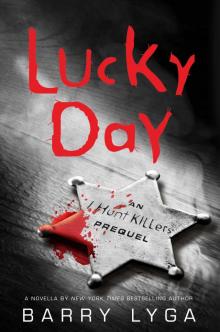 Lucky Day
Lucky Day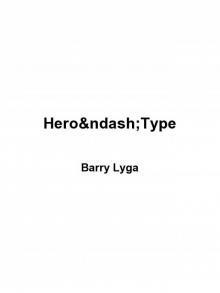 Hero-Type
Hero-Type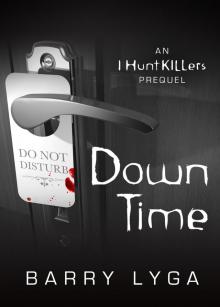 Down Time
Down Time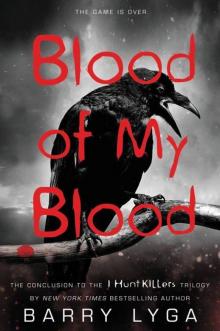 Blood of My Blood
Blood of My Blood Goth Girl Rising
Goth Girl Rising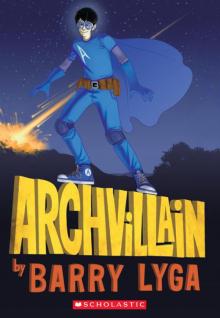 Archvillain
Archvillain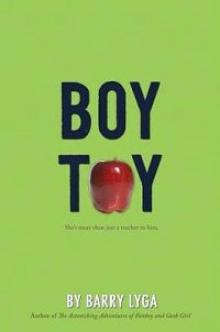 Boy Toy
Boy Toy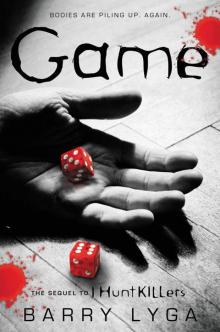 Game
Game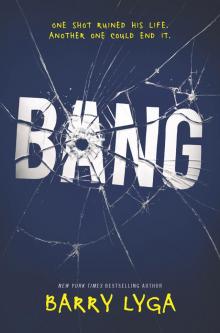 Bang
Bang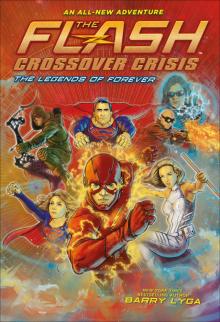 The Legends of Forever
The Legends of Forever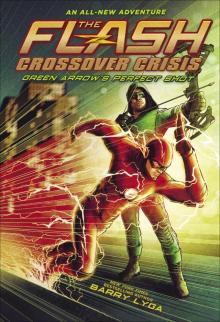 The Flash: Green Arrow's Perfect Shot
The Flash: Green Arrow's Perfect Shot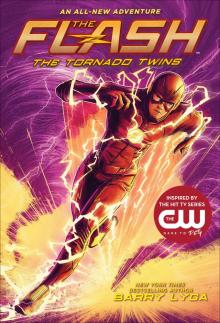 The Flash: The Tornado Twins
The Flash: The Tornado Twins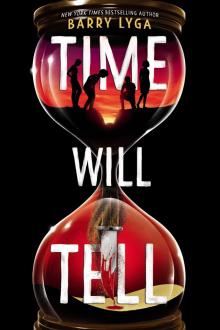 Time Will Tell
Time Will Tell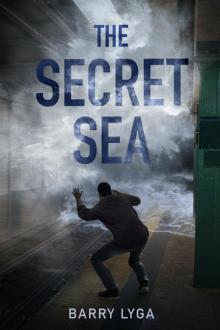 The Secret Sea
The Secret Sea The Hive
The Hive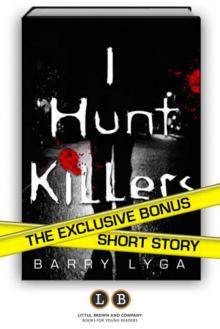 Career Day
Career Day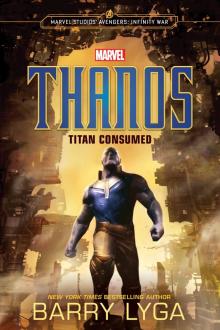 MARVEL's Avengers: Infinity War: Thanos
MARVEL's Avengers: Infinity War: Thanos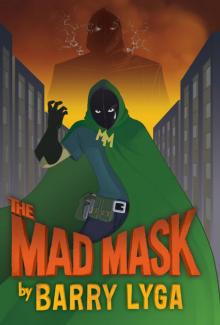 The Mad Mask
The Mad Mask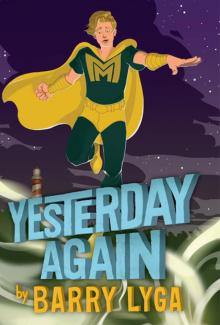 Yesterday Again
Yesterday Again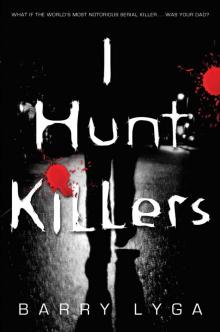 I Hunt Killers
I Hunt Killers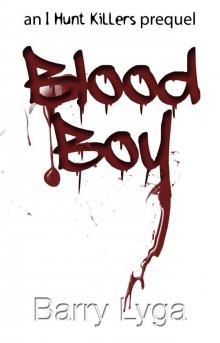 Blood Boy
Blood Boy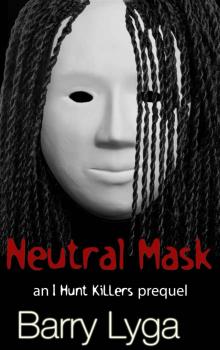 Neutral Mask
Neutral Mask The Astonishing Adventures of Fanboy and Goth Girl
The Astonishing Adventures of Fanboy and Goth Girl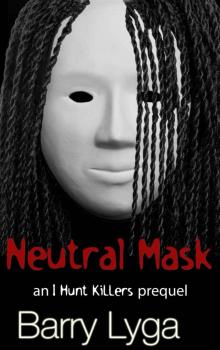 I Hunt Killers Neutral Mask
I Hunt Killers Neutral Mask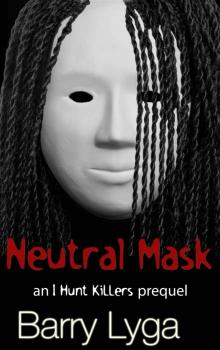 Neutral Mask: an I Hunt Killers prequel
Neutral Mask: an I Hunt Killers prequel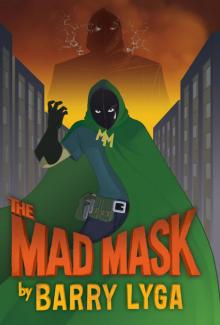 Mad Mask
Mad Mask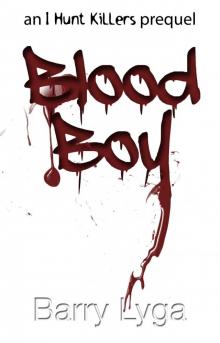 Blood Boy: an I Hunt Killers prequel
Blood Boy: an I Hunt Killers prequel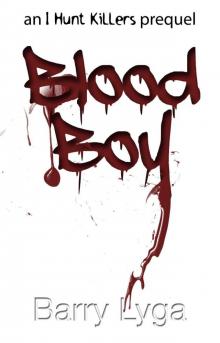 I Hunt Killers Blood Boy
I Hunt Killers Blood Boy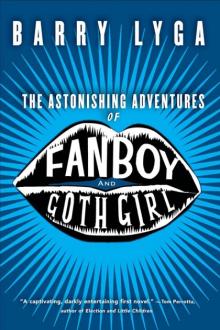 The Astonishing Adventures of Fan Boy and Goth Girl
The Astonishing Adventures of Fan Boy and Goth Girl